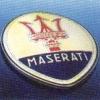Today there are a lot of discussions about the prize money in F1 and the strategy group. Teams have very much influence and power nowadays in Grand Prix history. I want to try to figure out, how that came over the years and how it was in former days.
It is very difficult to research that topic because that are not really hard facts to research but it are more tendencies over years and developments over years which could not be captured by one fix point.So I hope there will be many users with their big knowledge interested in this topic.
Some points by me.
Today there are discussions about prize money which is not very fair. In former days the organisers of Grand Prix races spent start and price money. Were there any cases in the past that some big and popular teams got more start money for Grand Prix races that little teams? This system with teams were paid from the Grand Prix organisers was existing until the second Concorde Agreement in 1987 I think.
I don't know how much influence the team had in former days but since 1974 the influence was getting stronger when the FOCA was etablished. There was a FISA-FOCA war in the late 70s until the early 80s and with Ecclestone on the top of FOCA the power of the teams was increasing. Ecclestone got the comerical rights for F1 in 1987 and since 1999 he was selling shares for getting more money.
In 2004 150 Mio Dollars prize money was paid for the teams, with the first once getting 22 Mio and the last one 11 Mio (that was fair!)
There were a lot of attempts for brake-away series, the first in 2001 when the GPWC was founded by the automobile engine suppliers. That was because of they wanted more money from Ecclestone and they feared that F1 races could just be seen in pay TV after Kirch Media was buying some F1 shares. Ecclestone was paying Ferrari 100 Mio Dollars to withdraw from GPWC and so in 2005 the GPCW los influence. A very similar case was in 2009 with FOTA (founded by F1 teams), Ecclestone also bought out the teams from FOTA and the teams got individual contracts with Ecclestone. That's why there is a not very fair prize money system today.
But why have the teams so much power in F1? I think because F1 is so expensive and there are no teams who could join F1 if some teams withdraw. But why was it different before 1974? Because it was less expensive?
What do you think about that topic?


















